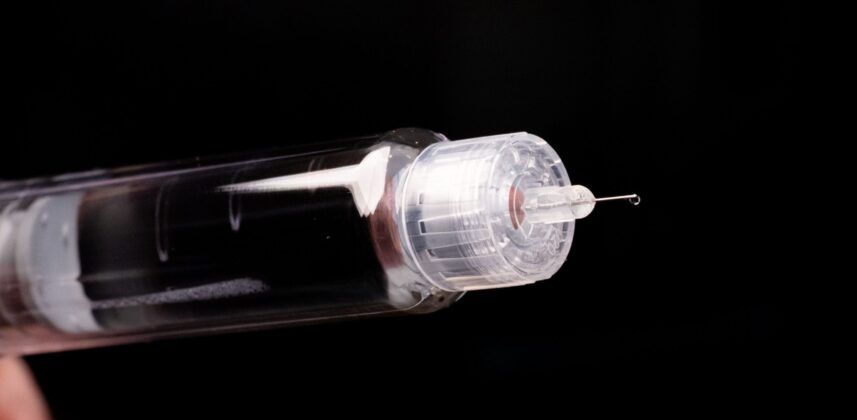Microdosing Mounjaro and Wegovy: A trend under scrutiny
Anna-Louise Dearden | Last update: 1st May 2025

Microdosing GLP-1 weight loss drugs like Mounjaro and Wegovy has emerged as a controversial trend in the wellness world. Proponents claim that smaller doses can curb appetite and promote weight loss while minimising side effects, but the practice raises significant questions about safety, efficacy, and medical oversight.
Here’s a closer look at why some are microdosing, what the claims are, and whether it’s a viable approach for weight management.
What is microdosing GLP-1s?
Microdosing involves taking less than the standard prescribed dose of Wegovy, Mounjaro or other GLp-1 weight loss drugs. These drugs, originally developed to treat type 2 diabetes, have become popular for weight loss due to their ability to suppress appetite and support metabolic health.
Typically, GLP-1 treatments follow a titration schedule — patients start at a low dose and gradually increase to minimise side effects like nausea, vomiting, and diarrhoea. Microdosing takes this concept further by starting with even smaller doses or maintaining a minimal dosage throughout treatment.
Why are people microdosing?
There are several reasons why individuals might opt for microdosing GLP-1 drugs:
- Minimising side effects: Standard doses can cause gastrointestinal discomfort, and microdosing is seen as a way to reduce these effects.
- Managing cost: With GLP-1 medications being expensive, some users stretch their supply by reducing their dose.
- Weight loss maintenance: Some users who’ve achieved their weight loss goals lower their dose to sustain progress while avoiding higher costs or side effects.
- Overcoming shortages: During periods of supply disruption, smaller doses can help patients maintain some level of treatment.
On social media, microdosing has gained attention as a “hack” for weight loss, with users sharing tips and dosing schedules.
Does it work?
The evidence supporting microdosing is mostly anecdotal. While some users report benefits, experts caution that the effectiveness of GLP-1 drugs relies on reaching therapeutic doses.
- Weight loss results: Research indicates that standard doses are required to achieve significant weight loss. The general view of medical and healthcare professionals is that most patients don’t see the benefits of weight loss until they reach higher doses.
- Managing side effects: For those struggling with side effects, microdosing may provide a gentler introduction to GLP-1s, but this should always be done under medical supervision.
- Placebo effect: Some improvements seen with microdosing could be psychological, as users feel motivated to adopt healthier habits.
The risks of microdosing
Microdosing comes with notable risks, particularly if undertaken without medical guidance.
- Safety concerns: Adjusting doses outside the prescribed regimen can lead to overdosing, underdosing, or prolonged side effects.
- Compounded drugs: Microdosing often requires using compounded versions of GLP-1 drugs, which are not regulated to the same standard as brand-name medications and may pose contamination risks.
- Reduced efficacy: Taking too little of the medication may not deliver the therapeutic benefits needed to manage weight effectively.
- Potential for misuse: Without proper oversight, users might adopt unsafe practices, such as “click counting” on injection pens to self-adjust doses.
What do experts recommend?
Healthcare professionals are cautious about microdosing and stress the importance of medical oversight.
- Work with a doctor: Only a qualified healthcare provider can determine whether microdosing is appropriate and ensure it’s done safely.
- Follow prescribed dosages: The standard titration schedule is designed to balance efficacy and side effects. Deviating from this may compromise results.
- Beware of compounded drugs: Avoid purchasing medications from unregulated sources, as they can carry significant safety risks.
Most medical and healthcare specialists warn that microdosing is an off-label strategy with limited evidence and that it’s crucial to follow guidelines for these medications to ensure safety and effectiveness.
Is microdosing right for you?
For most people seeking weight loss, microdosing is not the optimal path. Standard doses, prescribed and monitored by a healthcare provider, are far more likely to deliver effective results. However, for individuals struggling with severe side effects or supply issues, it may be worth exploring under strict medical supervision.
GLP-1 medications remain a powerful tool for weight management when used correctly, but they are not a one-size-fits-all solution. Healthy lifestyle habits, including a balanced diet and regular exercise, remain essential to achieving and maintaining weight loss success.
Have you tried microdosing weight loss treatments or considered it? Share your experience with the SlimrChat community to help others navigate their weight loss journeys. Click the button below and join the chat now!